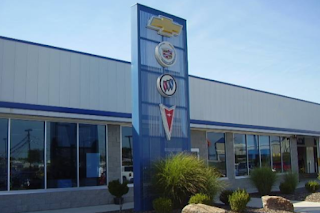The new year is upon us and most of my clients are very concerned with tax liability. They are looking for ways to offset or lower their taxes.
A cost segregation study can do just that for qualifying clients and it seems that you would qualify.
Especially this year because bonus depreciation has been doubled!
All we need to do to confirm your benefit is have you visit us at www.BusinessRefundEstimate.com and you will see your benefits in seconds.
Our Average Business Client Receives Over $240,000 in Benefits. Get an Estimated Benefit in 30 Seconds BusinessRefund.com
Wednesday, February 27, 2019
Sunday, February 24, 2019
Do you have a 'Tax Preparer' or a CPA?
Depending on your answer, you could be getting bad advice which puts more money in the IRS’s coffers (and leaves less in your pocket).
Below is the crux of a typical tax preparer’s opinion regarding Engineering Based Cost Segregation Studies which an experienced CPA would say has kept many commercial property owners from implementing this highly beneficial tax strategy which is effectively encouraged by the IRS.
Here is a typical ‘tax preparer’ statement to commercial property owners:
“You are not getting additional depreciation, you are accelerating depreciation by allocating cost to shorter life. I advise against such a strategy as there can be future tax implications and also there is upfront cost involved.”
“You are not getting additional depreciation, you are accelerating depreciation by allocating cost to shorter life. I advise against such a strategy as there can be future tax implications and also there is upfront cost involved.”
For frame of reference, here is the IRS’ view (from www.irs.gov) on cost segregation:
“Buildings and structural components have substantially longer depreciable lives than personal property. Therefore, it is desirable for taxpayers to maximize personal property costs in order to accelerate depreciation deductions and, hence, reduce tax liability.” (source)
“Buildings and structural components have substantially longer depreciable lives than personal property. Therefore, it is desirable for taxpayers to maximize personal property costs in order to accelerate depreciation deductions and, hence, reduce tax liability.” (source)
Here’s how many experienced CPAs would look at this matter:
The above point of view isn’t considering the bigger picture. For instance, only looking at the (potentially) negative capital gains tax implications associated with cost segregation by itself is ‘missing the forest for the trees’:
- It is not necessarily true this would be a ‘negative’ as it would depend on the ultimate sale price versus the depreciable cost basis; if the sale price is equal to or less than the depreciable cost basis then the capital gains issue is, well, a non-issue.
- There is no consideration given to the positive effect on the income tax picture due to cost segregation; this positive effect needs to be weighed against the potentially negative capital gains effect.
- In general, property owners will benefit from cost segregation if they hold the building for at least 18 months. One reason for this dynamic is that the capital gains tax, even at the 25% ‘re-cap’ rate, is much lower than the typical 35% to 39.6% income tax rate.
- There is an assumption that the property owner is absolutely giving up all future depreciation benefits in exchange for taking those benefits now. Well, if the owner never replaces carpeting, wiring, plumbing and other such non-structural components, then, ‘yes’, that would be the case. But the reality is that these components will ultimately be replaced (which is the basis for the relatively shorter/accelerated tax-compliant depreciation time-lines for such items). The associated replacement costs can be depreciated.
So, in fact, the depreciation isn’t lost in reality. Plus, only about 20% of the building can be ‘accelerated’…the remainder stays in 39-year S/L.
- In effect, this is a time-value-of-money/opportunity cost ‘play’. So an owner’s capitalization rate needs to be considered; a critical mass of money in the hands of a good businessperson NOW could feasibly produce a 10% or greater return. An owner’s ability to convert that ‘now cash’ (i.e., cash that becomes available due to cost segregation’s resulting reduction in current income tax) into more cash could easily dwarf the down-the-road bit-by-bit depreciation cost deductions which the owner MAY be passing on.
- The “upfront costs” for conducting an Engineering Based Cost Segregation Study are barely worthy of factoring into the benefits equation; first, the Study is a business expense and effectively comes at a 35% (+/-) ‘discount’, and secondly, the Study cost can often be less than 10% of the tax benefit (even without the ‘discount’). Most business-minded people would find a project with a minimum 10:1 benefit-to-cost ratio to be worthy of pursuit.
So, do you have a ‘Tax Preparer’ or a CPA? The best way to find out is to ask him or her how they perceive the value of an Engineering Based Cost Segregation Study for a commercial property owner and have them (or you) see your estimated savings in seconds at www.BusinessRefundEstimate.com
Saturday, February 16, 2019
Our Focus Industries Match Your Ideal Clients
While we can provide substantial benefit to all business types, we focus aggressively on those Industries that realize the greatest benefits. Our team of legal, tax and engineering professionals work with you to enhance your brand through the provision of the most proven and comprehensive series of reviews in the industry. Our efforts have resulted in 100's of millions of dollars in benefit to tax professional Clients. We specialize in cost recapture, refinement and tax mitigation services. These platforms have allowed both promising and established firms to experience explosive growth, enhanced Client retention and more comprehensive revenue. Tax practices that we work with have used these platforms to benefit and acquire new Clients of all sizes, ranging from small businesses up to and including, many fortune 500 companies across every market sector.
See how to expand your book-of-business.
Wednesday, February 6, 2019
USA Commercial Property Owners Pay Low or No Taxes!
Own Commercial Real Estate?
Search Hundreds of Local, State, and Federal Tax Incentives in 30 Seconds!
Watch the short video, then see your savings now.
Saturday, February 2, 2019
Thursday, January 31, 2019
We Help Dealerships Grow in 5 Key Ways - No Upfront Fees
SPECIALIZED TAX INCENTIVES
Our Proprietary App has helped deliver over $300M in Local, State, and Federal Tax Incentives to our clients. Our Industry Experts work with you to discover which incentives you are eligible for.
CREDIT CARD MERCHANT AUDIT - no need to change providers
Our Credit Card Merchant audit helps organizations reduce payment processing expenses. Our proprietary tools audit and analyze credit card processing and provide transparency to merchant fees and statements.
WASTE AND RECYCLING AUDIT
Our analysis includes finding loopholes by conducting a thorough review of your property, past invoices and pricing schedule. Whether the property is located in a city with set pricing or an open market, we know what it takes to uncover big savings
WORK COMP INSURANCE AUDIT
70% of all employers have overpaid on their Workers' Compensation premium costs. Our team performs a review to determine if there is a significant opportunity for a lower rated classification as they are typically determined by insurance company underwriters.
PARCEL SHIPPING EXPENSE AUDIT
Our audit software automatically downloads carrier invoices and secures refunds for clients. Our processes are not intrusive. We currently have an annual audit volume of $1.6 Billion Dollars and our billing is based on a percentage of received refunds.
ALL WITH NO UPFRONT FEES.
See your potential benefits now: www.BusinessRefundEstimate.com
Tuesday, January 29, 2019
The Truth About Cost Segregation for Automotive Dealerships after the TCJA Changes
The automotive dealership industry is unique because each dealership is in a constant state of construction, remodeling, expanding or purchasing existing properties. The only way to ensure this constant state of flux doesn’t bankrupt a dealership is to review these assets to determine the shortest recovery life possible, expensing in the current tax year.
By taking advantage of all eligible tax deductions it opens up cash flow for your dealership that would have otherwise been lost. A fixed asset review can easily be done by having a cost segregation study performed.
The Tax Cut and Jobs Act or TCJA was the most sweeping tax code change in 30 years and has significant impact on the automotive dealership industry along with the tax incentives that allow you to obtain the benefit from a cost segregation study.
There are three significant aspects of the TCJA that when combined make for an interesting ride for auto dealerships looking to obtain their rightful tax deductions. Let’s take a look.
Section 179
The TCJA expanded section 179 from a $510,000 limit to $1 million and now includes improvements it did not previously such as: roofing, fire protection and alarm systems. All of which are large expenses for an auto dealership in the midst of new construction or remodeling.
Floor Plan Interest
The TCJA preserved the 100% deduction of floor plan interest. If you are eligible for floor plan interest you must claim it, it is not optional. However, there is a catch. If you are eligible you cannot claim bonus depreciation. This doesn’t mean an automatic sigh and slump in your chair, not all dealerships qualify for floor plan interest and bonus depreciation is not the only aspect of a cost segregation that benefits auto dealerships.
Bonus Depreciation
Bonus Depreciation was highly expanded with the TCJA. It was increased from 50% to 100% and applies to both new and used properties acquired through December 31, 2022. This is an unheard of expansion of bonus depreciation and has such a significant impact that the National Automobile Dealers Association (NADA) is currently working through hearings with the IRS demanding the 100% bonus depreciation because the TCJA eliminated the like-kind exchange tax benefit for all but real property. We expect to see continued discussion on this topic over the next several months.
Although some automotive dealerships won’t be able to benefit from the expansion of bonus depreciation because of the changes with the TCJA it does not eliminate the enormous financial impact that a cost segregation study has for an auto dealership.
To find out more please contact us today at www.BusinessRefundEstimate.com
The TCJA expanded section 179 from a $510,000 limit to $1 million and now includes improvements it did not previously such as: roofing, fire protection and alarm systems. All of which are large expenses for an auto dealership in the midst of new construction or remodeling.
Bonus Depreciation was highly expanded with the TCJA. It was increased from 50% to 100% and applies to both new and used properties acquired through December 31, 2022. This is an unheard of expansion of bonus depreciation and has such a significant impact that the National Automobile Dealers Association (NADA) is currently working through hearings with the IRS demanding the 100% bonus depreciation because the TCJA eliminated the like-kind exchange tax benefit for all but real property. We expect to see continued discussion on this topic over the next several months.
Subscribe to:
Posts (Atom)






